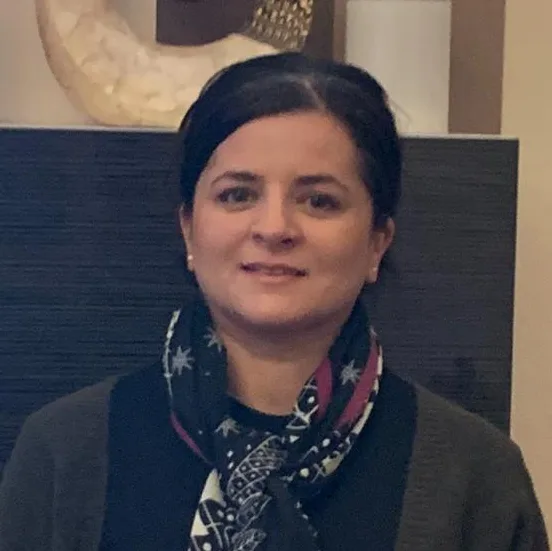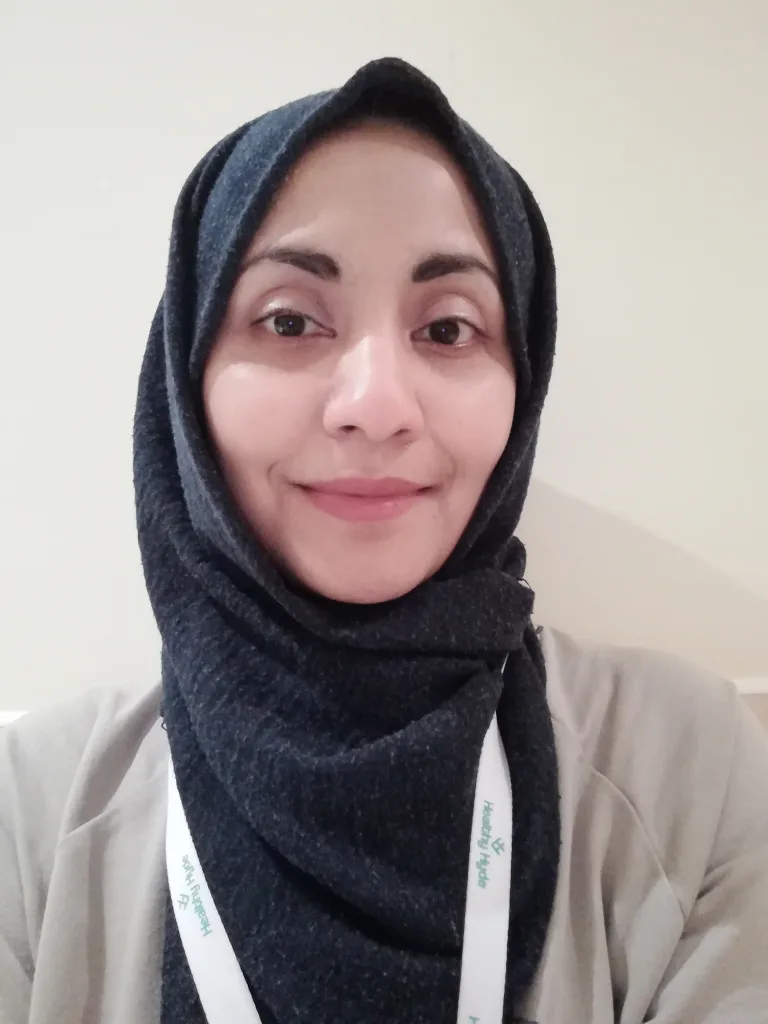
A Social Prescriber’s work includes organising social groups, helping with language translation and interpretation for medical appointments, or providing emotional support to patients.
The team at your local GP practice is made up of a range of health professionals, so you can see the right person for your particular health concerns.
We met two health professionals, Zahida and Ruhela, who explained their roles and how the GP practices they work at are helping to improve patients’ experiences.

Zahida Iqbal is a Social Prescriber at The Bridge Primary Care Network in Rochdale. “I’ve been a Social Prescriber – or ‘Link Worker’ – for four and a half years,” she says.
“I support patients to take more control of their health and wellbeing, connecting them with local community services that can help with the problems they may have. For example, some people need help with finances, housing, or employment, or support with things like quitting smoking or losing weight.”
We might not immediately think of these types of issues as something to go to our doctor about, but most of Zahida’s referrals are from GPs, practice nurses or reception staff at the surgery. Zahida explains how working as a team has made a wider range of services accessible to every patient:
“If you need to see a GP you will always be offered an appointment, but there may be other health professionals – like me – who can provide more appropriate support. My appointment slots are longer than a GP’s, so I have time to help patients talk through their issues in more detail.
“A GP can provide medical treatment, whereas my experience enables me to come at it from a social, emotional and practical angle.”
Zahida also recognises the importance of health professionals getting to know each person they see, and the joint knowledge they are able to use to help every individual.
“When we take the time to understand each patient and their needs, we can help them even more. The advantage of working as part of a network and an integrated team is that we can each use our own skills to help, so our support to the patient is as holistic as possible and can make a genuine difference.”
You can call the reception team at your GP practice, or fill in an online form on your surgery’s website, and you’ll be asked questions that will help to make sure you’re directed to a health professional who is most appropriate for what you need.
General practice teams can include physiotherapists, clinical pharmacists, mental health practitioners and paramedics, among others.

Ruhela Begum is a Wellbeing Practitioner working in Tameside, and is part of a local team of wellbeing practitioners, nurses, paramedics and mental health nurses.
Ruhela has been in her role for over a year and has spent nearly 20-years working in the local community. With such a range of team members and roles, they can work across the community, giving patients access to many different services in their neighbourhoods.
“Our role as a team is to support our local GP practices to provide patients with the best possible healthcare and access to local services.
“My day-to-day work varies from organising social groups, to helping with language translation and interpretation for medical appointments, or providing emotional support to patients.
“Sometimes people don’t put their health at the top of their priority list, and it’s my job to help them do this. I’ve learnt a lot from the people I support, and I feel real pride, passion and gratitude for my work at the end of every day.”
Ruhela has seen first-hand how changes to the team at her local GP practices have supported patients to feel more in control of their health, by offering a variety of health professionals who can helps with different types of health concerns.
“We’re here to help you, and we’re all working together to make sure our patients get the care they need.
“Other members of the team feel they can approach me to get a better understanding of cultural needs for our community, for example.
“From the moment a patient calls their GP practice, the reception team is listening carefully and asking the right questions to understand what that patient needs.”
Your general practice team is here to help you. Visit nhs.uk/GPservices to find out more.







